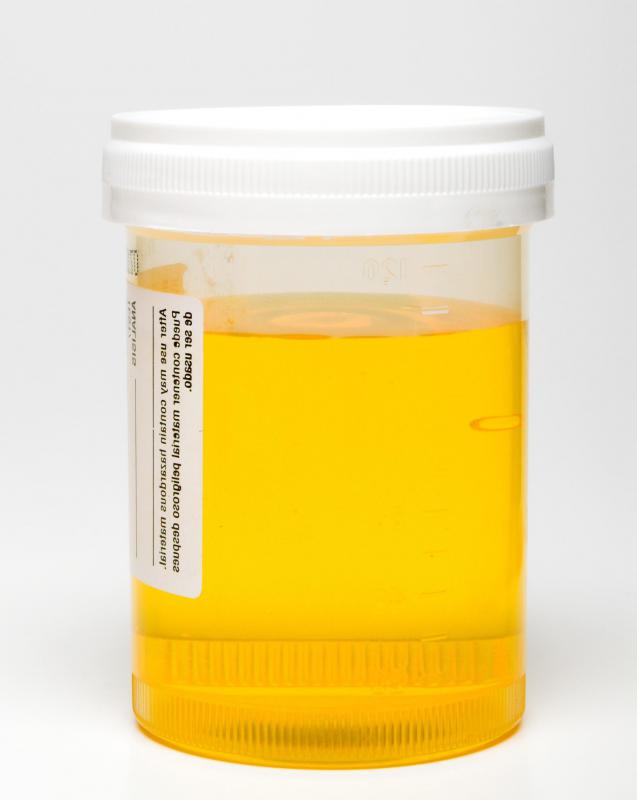At TheHealthBoard, we're committed to delivering accurate, trustworthy information. Our expert-authored content is rigorously fact-checked and sourced from credible authorities. Discover how we uphold the highest standards in providing you with reliable knowledge.
How Effective Is Azithromycin for Gonorrhea?
Gonorrhea is a sexually transmitted disease (STD). Some sexually transmitted illnesses have no cure, but gonorrhea patients can get rid of the disease by taking prescription medications, including azithromycin. A patient should take the full amount of azithromycin prescribed by a doctor to be sure the medicine is able to clear the body of the bacteria. Many people who go for treatment early on and take azithromycin for gonorrhea as instructed will have a high success rate of being cured after one round of pills.
Anyone who has had unprotected sex is at risk of contracting gonorrhea. A person who has contracted gonorrhea may notice symptoms such as vaginal discharge, pain during urination, tender testicles or a sore throat within a couple of days after the sexual encounter with an infected partner. People who have had unprotected sex and suspect they may have contracted gonorrhea should see a doctor as soon as possible for an evaluation. Doctors can take vaginal cultures in women and urethral cultures in men to test for gonorrhea.

If a patient tests positive for the illness, then a doctor may prescribe azithromycin for gonorrhea. A medical professional typically will give a patient between one and five days' worth of pills to take orally. Patients who finish all of their medication and take the pills on time each day have the best chance of getting better. Some doctors may want to see a patient again after treatment to make sure the infection is gone. People taking azithromycin for gonorrhea should avoid having sex until a doctor has confirmed the infection is gone.

Azithromycin can have some side effects, including diarrhea. A patient who experiences this side effect should ask the doctor what types of over-the-counter remedies are safe to treat the diarrhea while taking azithromycin. Other typical side effects can include vomiting, stomach pain and minor skin irritation. More serious side effects of azithromycin include jaundice, swelling throughout the body and trouble breathing. A person who experiences one of the more serious side effects after taking this medication should go to the emergency room or contact a doctor as soon as possible.

Patients who have never used this medication before should discuss their health history openly and honestly with the doctor before taking azithromycin for gonorrhea. A doctor especially needs to know if a patient has liver disease, human immunodeficiency virus (HIV) or a kidney disease before prescribing this course of treatment. This medicine also may not be the ideal choice for people who are taking blood thinners. Doctors will often prescribe antibiotics in addition to azithromycin in the treatment of gonorrhea, such as ceftriaxone. This is called dual antibiotic treatment. Medications prescribed for gonorrhea may vary due to drug allergies and/or the severity or persistence of the infection.
AS FEATURED ON:
AS FEATURED ON:
















Discussion Comments
Gonorrhea is often treated orally with ceftriaxone 250mg but doctors also prescribe azithromycin 1g (500mg x2) at the same time. Some think that this is only due to the risk of chlamydia but even if the person tests negative for chylamydia, both of these are usually given.
Isn't azithromycin mainly used to treat chlamydia? How does it also work for gonorrhea?
I don't understand this because the bacteria that cause chlamydia and gonorrhea are different. Does anyone know?
@ddljohn-- I think that's possible, someone can go through a full course and still carry the bacteria, but it's not common. I actually asked my doctor about this and he said that one course of azithromycin is enough to clear gonorrhea in about 75% of people.
But this is also why doctors have people go back in after being treated with azithromycin for another culture test. You really can't know for sure whether the azithromycin was effective until you go back for that second test and the lab says you're all clear. That's what I did and one course of azithromycin was enough to get rid of the bacteria with me.
I thought that there was no cure for gonorrhea. I thought it was like some other STDs, like herpes, where the virus or bacteria stays with you for the rest of your life. It's really good that gonorrhea can be treated completely with this medication.
Are there any cases though where someone who is infected takes a full course of azithromycin but still has the gonorrhea bacteria after? What happens then?
Post your comments